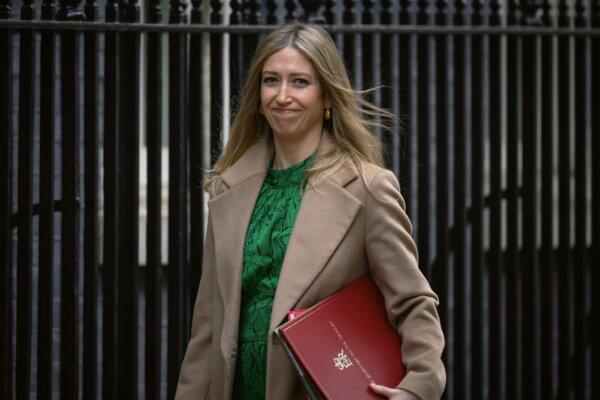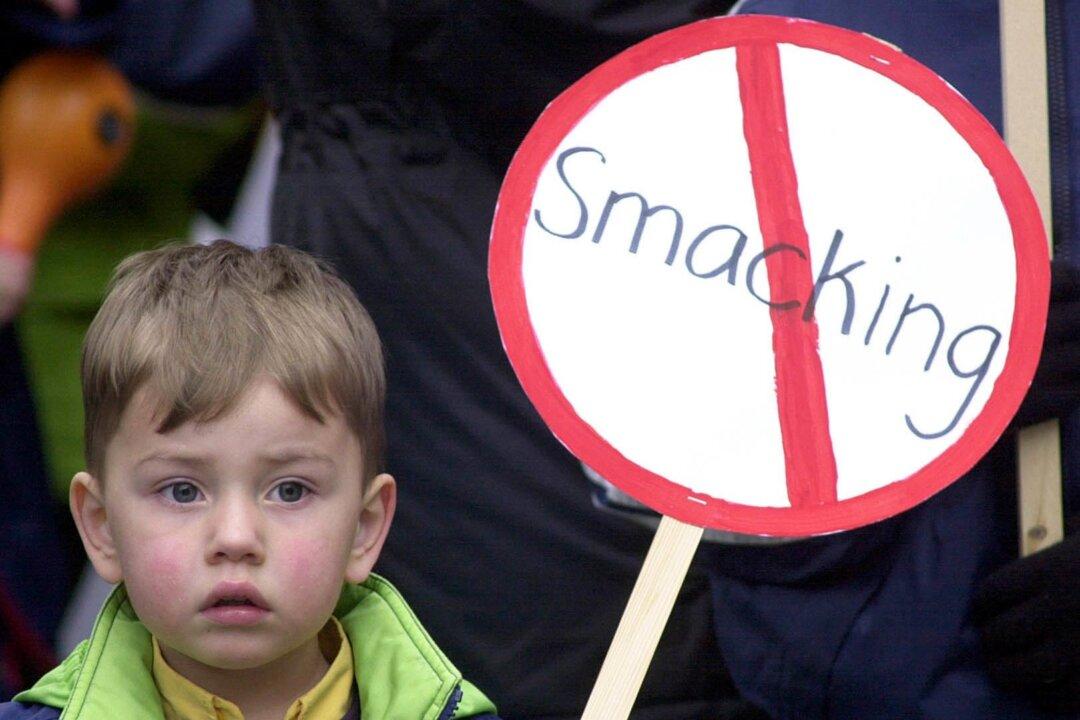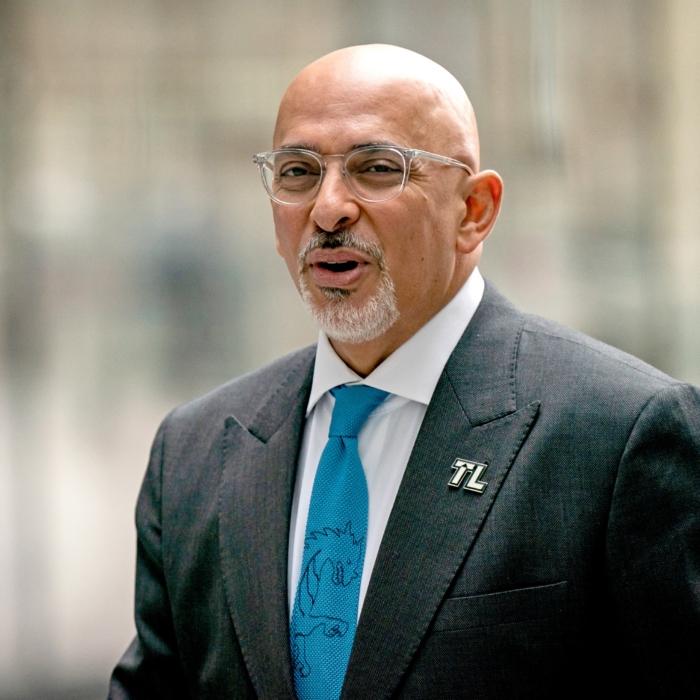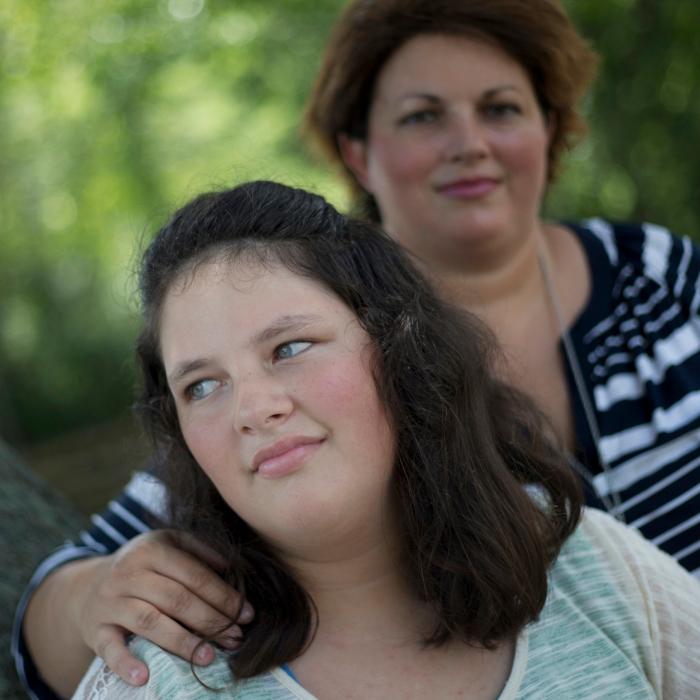Paediatricians have urged the government to bring in a new law to make clear that smacking children is not acceptable in any circumstance.
Such laws have already been passed by the devolved governments of Scotland and Wales, but Westminster and Stormont have not followed suit, meaning there are “grey areas” in England and Northern Ireland as to what is lawful, according to the Royal College of Paediatrics and Child Health (RCPCH).
A government minister said in response that how a child is disciplined is not a matter for state intervention, but with a general election imminent, Labour could try to bring in such a law.
Scotland was the first UK nation to implement a smacking ban in November 2020, while Wales followed suit in March 2022, outlawing any type of corporal punishment. Sweden was the first country in the world to ban smacking in the home when it outlawed corporal punishment in 1979.
The RCPCH has called for amendments to the Children Act 2004 for England and the Law Reform Order 2006 for Northern Ireland to remove the “reasonable punishment” defence available to parents accused of physical abuse.
‘Unjust and Vague Laws’
Professor Andrew Rowland, a consultant paediatrician and RCPCH officer for child protection, said that society’s views on punishment had changed over time, and claimed a majority of adults now agree that physical punishment of children is unacceptable.“The laws around physical punishment as they stand are unjust and dangerously vague,” he said.
“They create a grey area in which some forms of physical punishment may be lawful, and some are not.”
He added, “This lack of legislative clarity can even add an extra layer of complexity when trying to identify cases of child abuse.”
Physical punishment could also result in a child believing that violence is acceptable and this could “lead to further instances of violence and harm later in life,” he added.
Mr. Rowland said: “There must be no grey areas when it comes to safeguarding children. Changing the laws in England and Northern Ireland will give us absolute clarity and ensure there are no instances where it is acceptable or lawful to smack a child.”
Criminal defense law firm, BSB Solicitors, said in an online post about smacking children that the common law has long had a concept of “reasonable chastisement” when it comes to disciplining children.
“A parent or person in loco parentis may administer reasonable corporate punishment, although concepts of ’reasonableness’ have narrowed.”
English Parents Break Law if They Smack a Child in Wales
The smacking laws passed in Scotland and Wales were the first divergence of core criminal law from England and Northern Ireland.English parents would be committing an offence if they smacked their child in Wales or Scotland, although many would not be aware of this.
The NSPCC’s Joanna Barrett said children in England and Northern Ireland “continue to be exposed to a legal loophole that can undermine their basic right to protection under the guise of ‘reasonable chastisement.'”
She added, “As this timely report from child health experts at RCPCH shows, hitting a child can have harmful and lasting consequences.”
“We know from Childline that physical punishment can impact a child’s mental and emotional health and damage the relationship between parent and child.”
“That’s why we’re calling on political leaders in England and Northern Ireland to commit to bringing an end to the physical punishment of children—as the rest of the UK have successfully done.”

‘Motivated by Ideology’
But Simon Calvert from the Be Reasonable Campaign said calls for a change in the law “are motivated by ideology, not by clinical evidence, and elected representatives must reject them.”He added, “The current law strongly prohibits all violence against children, while protecting parents from prosecution for innocent and harmless parenting decisions.”
“The reasonable chastisement defence is, by definition, limited to actions the court deems reasonable.”
Asked by Sky News if she would support plans to make smacking illegal in England and Northern Ireland, treasury minister Laura Trott said, “We obviously have very clear laws in this country about abuse of children.”
“They are very clearly set out in the Children Act, but it is for parents to discipline their children.”
Pressed on whether she agrees with paediatricians that the current law is vague, she added, “It is very clear that any abuse of children is completely unacceptable.”
“We have been working very hard to make sure all the agencies involved with children are really cracking down on abuse, that there are clear guidelines involved.”
A spokesperson for the Department for Education said: “Any form of violence towards a child is completely unacceptable and we have clear laws in place to prevent it. It is the responsibility of the parent to discipline their children, appropriately and within the boundaries of the law.”
“We are supporting teachers, social workers, and all safeguarding professionals to spot the signs of abuse or neglect more quickly, and our statutory framework for safeguarding children in England makes clear what organisations should do to keep children safe.”
A spokesperson for the Northern Ireland Department of Health said, “Any decision to amend the legal position as set out in the Law Reform (Miscellaneous Provisions) (Northern Ireland) Order 2006 will require the agreement of the Northern Ireland Executive.”
“The Department of Health continues to play an important role in supporting parents and carers of children and young people and in particular to promote positive parenting behaviours.”







